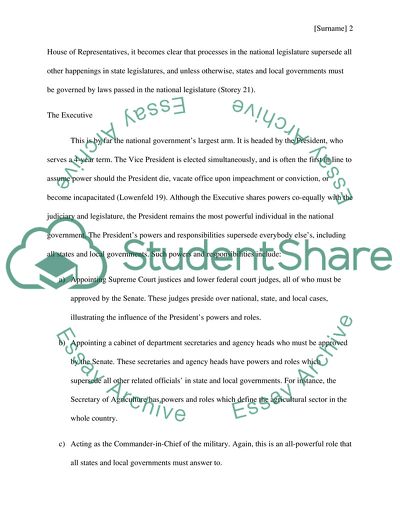Cite this document
(What Role should the National Government Have within the Federal Coursework, n.d.)
What Role should the National Government Have within the Federal Coursework. https://studentshare.org/politics/1816421-what-role-should-the-national-government-have-within-the-federal-system-in-other-words-how-have-the-actions-of-the-national-government-caused-conflicts-between-the-rights-of-individuals-state-government-and-the-national-government
What Role should the National Government Have within the Federal Coursework. https://studentshare.org/politics/1816421-what-role-should-the-national-government-have-within-the-federal-system-in-other-words-how-have-the-actions-of-the-national-government-caused-conflicts-between-the-rights-of-individuals-state-government-and-the-national-government
(What Role Should the National Government Have Within the Federal Coursework)
What Role Should the National Government Have Within the Federal Coursework. https://studentshare.org/politics/1816421-what-role-should-the-national-government-have-within-the-federal-system-in-other-words-how-have-the-actions-of-the-national-government-caused-conflicts-between-the-rights-of-individuals-state-government-and-the-national-government.
What Role Should the National Government Have Within the Federal Coursework. https://studentshare.org/politics/1816421-what-role-should-the-national-government-have-within-the-federal-system-in-other-words-how-have-the-actions-of-the-national-government-caused-conflicts-between-the-rights-of-individuals-state-government-and-the-national-government.
“What Role Should the National Government Have Within the Federal Coursework”. https://studentshare.org/politics/1816421-what-role-should-the-national-government-have-within-the-federal-system-in-other-words-how-have-the-actions-of-the-national-government-caused-conflicts-between-the-rights-of-individuals-state-government-and-the-national-government.


